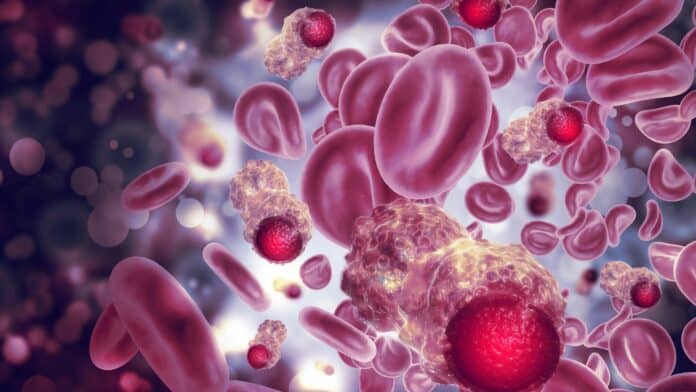The association between cancer and autoimmune disease is unexplained. Scientists had previously noticed that leukaemia patients were also likely to develop an autoimmune disease, such as rheumatoid arthritis or aplastic anemia. Research into this link revealed that immune cells called killer T cells – responsible for destroying harmful cells and pathogens – were key players.
A new study sheds light on the role of these killer T cells in leukaemia and autoimmune disease. The Garvan Institute of Medical Research study found that variations in a protein’s gene that regulates the proliferation of killer T cells can cause those cells to go rogue.
Dr. Etienne Masle-Farquhar, a postdoctoral researcher in the Immunogenomics and Genomic Medicine Labs at Garvan, said, “We showed that these rogue killer T cells are driving the autoimmunity. They’re probably one of the cell types most directly contributing to autoimmune disease. Our research also narrows down a few pathways that might help target these cells for future treatments.”
“We knew that people with various autoimmune diseases acquire these rogue killer T cells over time, but inflammation can cause immune cells to proliferate and develop mutations. We set out to discover whether the rogue T cells were causing these autoimmune conditions or simply associated with them.”
Using high-resolution screening methods, scientists observed blood from children with rare inherited autoimmune diseases. Then, in mouse models, they used a method known as CRISPR/Cas9, a genome editing tool, to ascertain what happens when the protein STAT3 is genetically altered.
Scientists identified that alterations of these proteins could cause rogue killer T cells to grow unchecked, resulting in enlarged cells that bypass immune checkpoints to attack the body’s cells. In addition, even just 1-2% of a person’s T cells going rogue could cause autoimmune disease.
Professor Chris Goodnow, Head of the Immunogenomics Lab and Chair of The Bill and Patricia Ritchie Foundation at Garvan, said, “It’s never been clear what the connection between leukaemia and autoimmune disease is – whether the altered STAT3 protein is driving disease, or whether leukaemic cells are dividing and acquiring this mutation just as a by-product. It’s a real chicken-and-egg question, which Dr. Masle-Farquhar’s work has been able to solve.”
“This gives some really good cracks in the coalface of where we might do better in stopping these diseases, which are sometimes life-threatening.”
“We can now go and look for T cells with STAT3 variations. That’s a big step forward in defining who’s the bad guy.”
The study also discovered two distinct receptor systems or channels by which cells communicate that are linked to stress.
Professor Goodnow says, “The stress-sensing pathways are driving these rogue cells to expand as killer T cells. There is a lot of correlation between stress, damage, and aging. Now we have tangible evidence of how that’s connected to autoimmunity.”
The study could help develop screening technologies that clinicians could use to sequence the complete genome of every cell in a blood sample.
Journal Reference:
- Etienne Masle-Farquhar et al. STAT3 gain-of-function mutations connect leukemia with autoimmune disease by pathological NKG2Dhi CD8+ T cell dysregulation and accumulation. Immunity. DOI: 10.1016/j.immuni.2022.11.001
